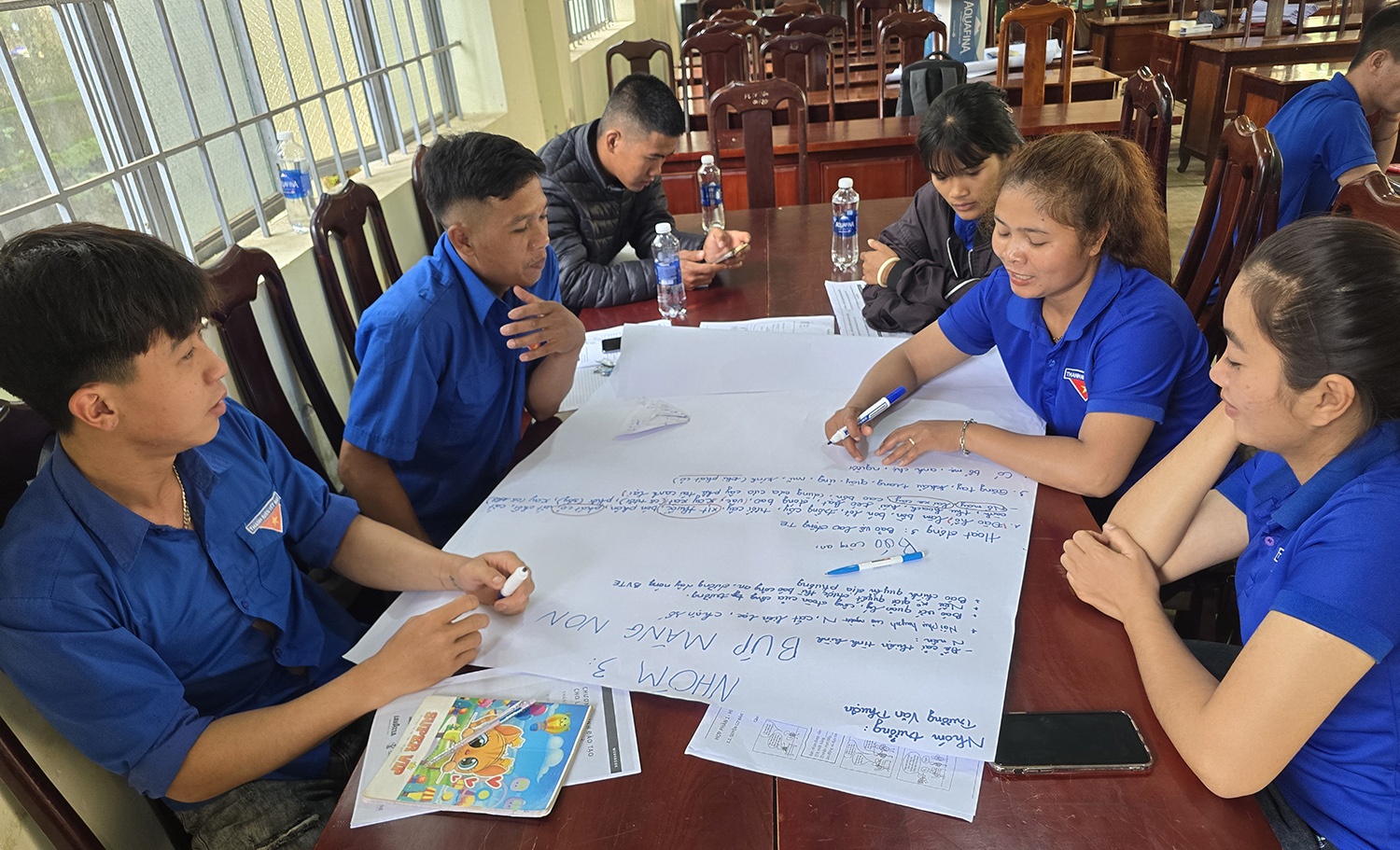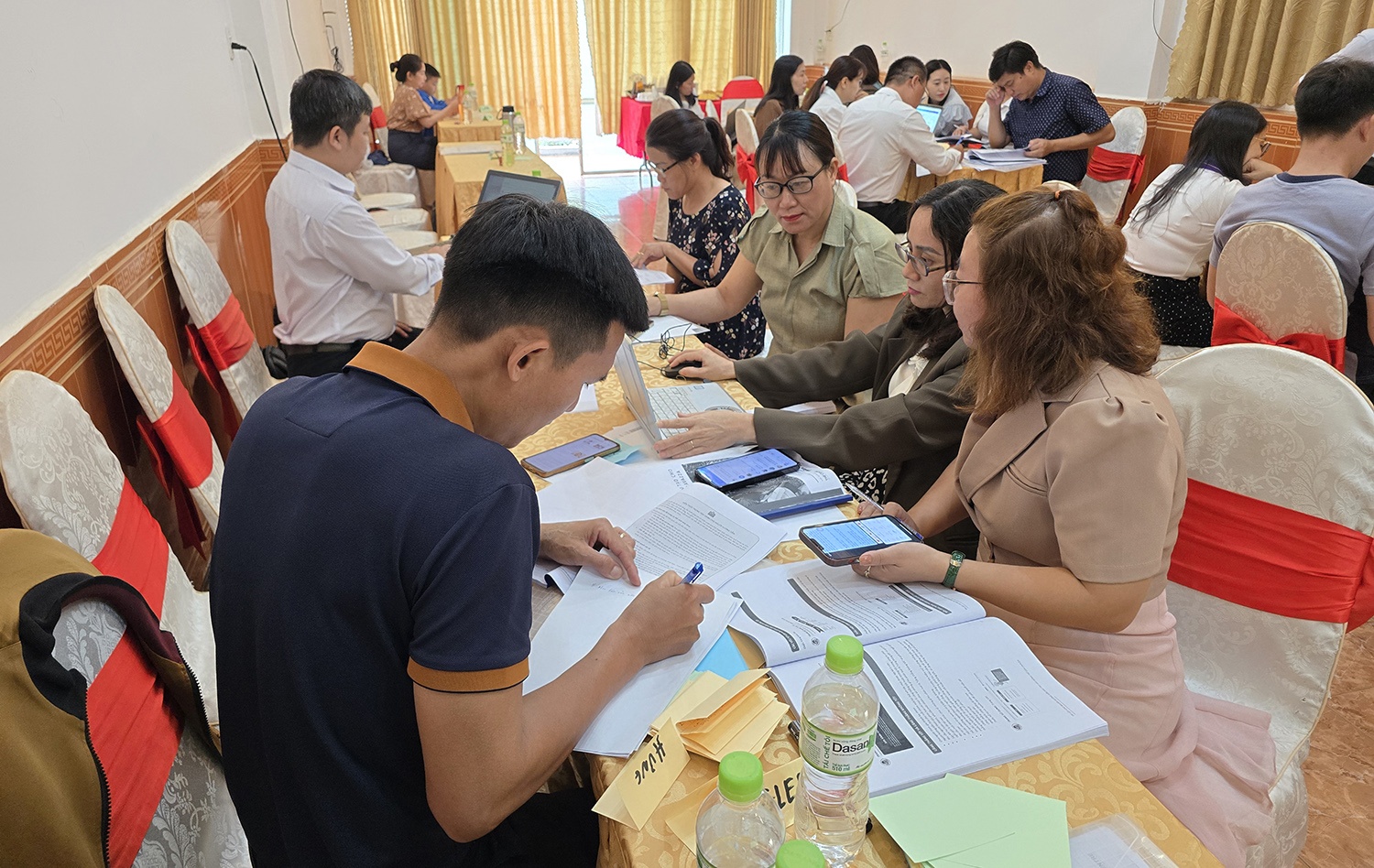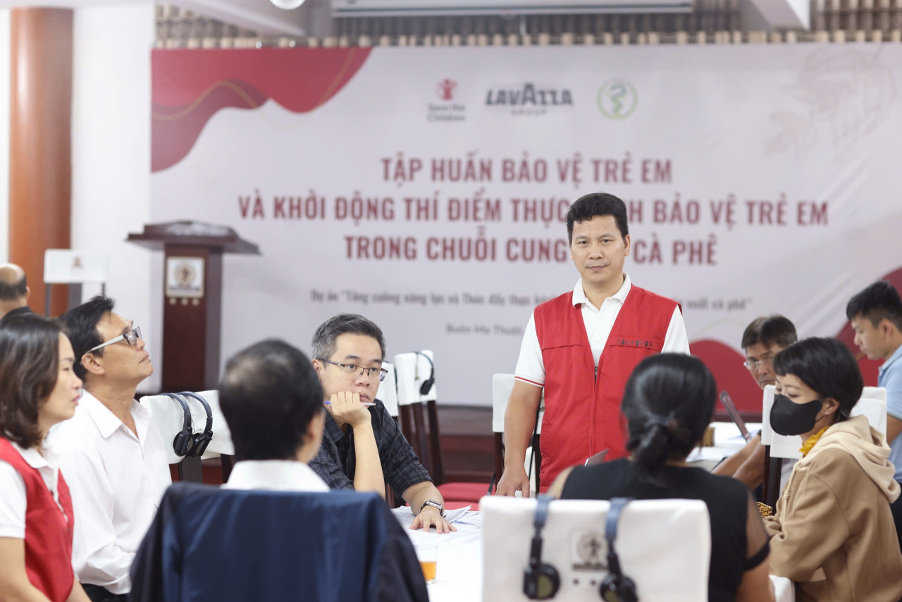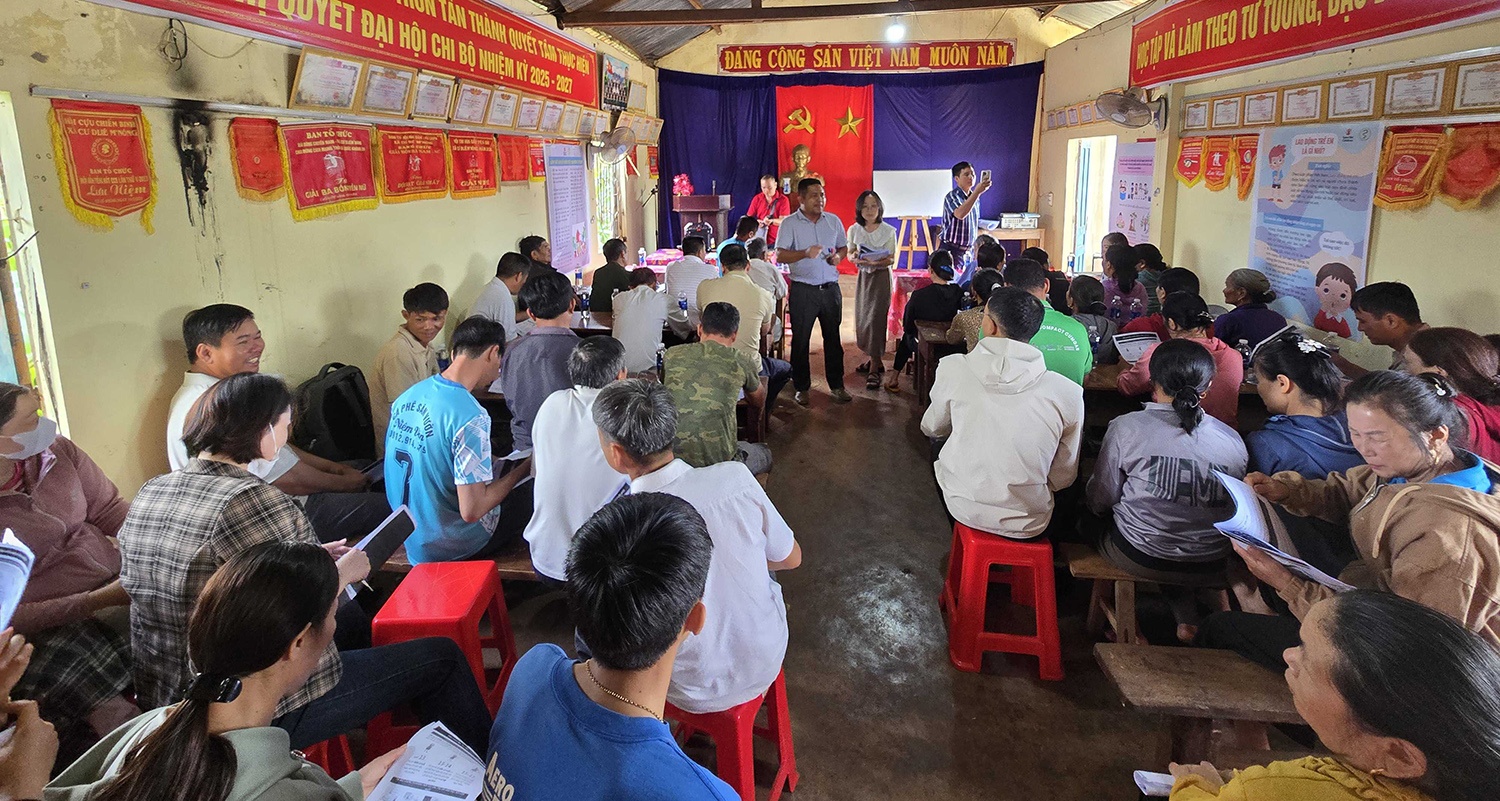

Photo: Young worker training/mentoring session
The coffee sector is a cornerstone of Vietnam’s economy, but like many agricultural supply chains, it faces challenges in ensuring children’s rights are fully respected and protected. Since 2020, Lavazza Group has partnered with Save the Children and The Centre for Child Rights and Business to address these risks in Dak Lak province – one of Vietnam’s key coffee sourcing areas.
The project “Child’s rights in the coffee sourcing sector” funded by Save the Children and Lavazza Group, spans two phases (2020–2023 and 2023–2026) with the overall goal of strengthening child rights in coffee production communities.
Phase 1 (2020–2023): Setting the foundation
The Centre conducted a comprehensive Child Rights Impact Assessment to identify how coffee production activities could affect children and their families. Based on these findings, The Centre, together with Save the Children, developed the first-ever child rights guidelines for the coffee sector. These guidelines were promoted among business stakeholders through a series of workshops.
Phase 2 (2023–2026): Scaling implementation
Building on these foundations, The Centre and Save the Children are now focused on ensuring the guidelines are practical and actionable for businesses across the supply chain. Our joint work includes:
Simplifying and tailoring guidelines for different supply chain actors (exporters, processors and farmers).
Training and capacity building for Tier 1 coffee companies and local partners, who can cascade the training to their own suppliers and farmer networks.
Consultancy on self-assessments and risk mitigation plans to help companies identify and address child rights risks in their operations.
Youth skills development, through a tailored employability training programme for young people of legal working age (young workers), supported by a “training-of-trainers” model to ensure long-term sustainability.
Progress to date
Developed a Facilitator’s Guide for Young Worker Training in the coffee sector and trained 24 local trainers to roll out the programme to youth.
Finalised Child Rights Guidelines for three target groups: Tier 1 exporters working directly with Lavazza Group, Tier 2 smaller companies working with exporters, and Tier 3 farmer households. Training-of-trainers sessions have been delivered to Tier 1 companies and local stakeholders to prepare them to cascade training down the supply chain.
In August, The Centre and Save the Children provided mentoring and coaching support to local trainers who have since trained seven representatives from six Tier 2 companies and 114 farmers. These sessions also introduced a self-assessment tool to help Tier 2 and Tier 3 stakeholders identify risks and develop child rights risk mitigation plans.
Through these steps, the project is equipping businesses and farmers with the tools and knowledge they need to integrate child rights into coffee sourcing practices, thereby creating more resilient supply chains that protect children and strengthen communities.
 Photo: Training of trainers for local partners
Photo: Training of trainers for local partners

Photo: Save the Children and The Centre co-facilitated the training for coffee businesses

Photo: Child rights guideline training for Tier 3 stakeholders
By using this website, you agree to our use of cookies. We use cookies to provide you with a great experience and to help our website run effectively.